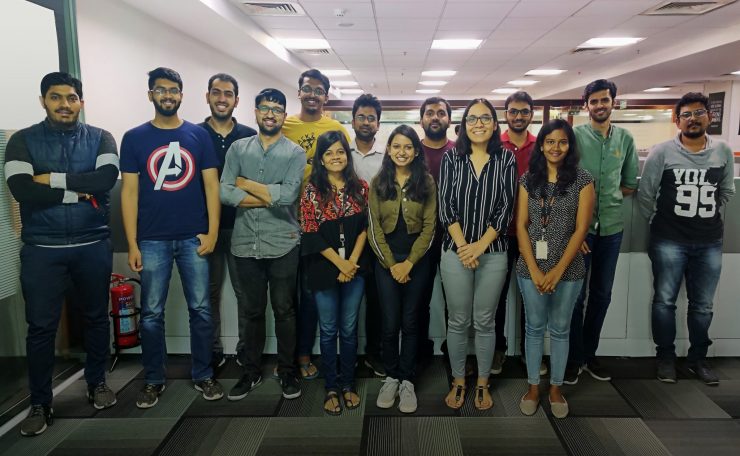In the healthcare industry, every decisions made and the steps taken can have a huge impact over the course of action, therefore affecting human life and health. By quickly gathering and analysing the available data accurately, decision-makers can make the right choices in regard to the surgery, treatment and even plan long-term and large-scale health events.
This is where big data analysis in the healthcare industry comes in. It not only helps in revolutionizing the way the healthcare industry operates but makes it possible to manage, analyse and use the obtained information for intended purposes easily.
Whether you are a healthcare administrator that looks after the industry’s business part or are a medical practitioner that works with the patients directly, data analytics can make decision-making highly streamlined.
In this blog, we will take a thorough look into various aspects of data analytics in the healthcare industry, along with the benefits it offers.
What is big data in the healthcare industry?
Big data is a term used by various industries to describe the astronomic volumes of information produced due to the use of digital technologies. Big data analysis can be used to reveal vital insights of massive scale from complex and diverse data.
When it comes to the healthcare industry, it is believed that analysis of big data using specific technologies can potentially help in preventing epidemics, cutting down costs, curing diseases, etc.
Due to increasing life expectancy in humans, the treatment models have evolved significantly. And many of these evolutions are driven by data. Doctors now want to know more about patients as early as possible to keep an eye on warning signs of serious illness, so it can be treated at the early stage when the process is simple and less expensive.
However, gathering such information from huge amounts of data has always been a costly and time-consuming affair until data analytics made it possible.
What is healthcare data analytics?
Healthcare data analytics is a process of gathering and analysing healthcare sector data with the purpose of obtaining insights and inducing decision-making.
Anything from clinical data to patient behaviour, medical expenses, healthcare, or pharmaceuticals data analytics can be employed at the micro and macro level to evidently enhance operations, boost patient care, and even tackle the overall expenses.
While healthcare data analytics is highly advantageous, it can get pretty complicated, too. Whether the data was collected by assessing important real-time signs or through electronic health records (EHR), it needs to be derived from various sources by following proper government regulations, thus making the process precarious and complex.
Types of healthcare analytics
Big data is ever-growing. And this makes it impossible to answer every question using the same data analysis. Therefore, using different types of big data analytics is vital to answer various questions and tackle numerous issues that arise in the healthcare setting.
Below mentioned are four types of data analytics that can be used in the healthcare industry –
1- Descriptive analysis
This type of analysis procedure utilizes historical data to unearth patterns and draw comparisons. Descriptive analysis is best for answering questions about things/concepts that have already occurred. In short, you can gain vital insights into the past using this type of data analysis process.
2- Predictive analysis
As the name suggests, this type of analysis is done to make predictions about the future. Both current and historical data are used for this type of data analysis.
The data obtained from the predictive analysis can be used to answer questions about what might happen next. So, when done correctly, predictive analysis can help you gain insights into the future and prepare for it accordingly.
3- Prescriptive analysis
Similar to predictive analysis, even prescriptive analysis helps in making predictions for the future. However, machine learning is the biggest factor used in this type of analysis. The information obtained can help in identifying the best course of action.
The prescriptive analysis makes it possible to gain insights into what needs to be done to reach the most ideal and expected outcome.
4- Diagnostic analysis
Diagnostic analysis plays a key role in the healthcare industry. It helps in seeking answers for what caused an event to take place. It can be used to diagnose a patient with a particular health concern as per the symptoms they are experiencing.
How is Data analytics benefiting the healthcare industry?
1- Improved research efforts
By gathering clinical data from various sources, data analytics techniques can be applied to enhance the research efforts. Most useful sources include,
- EHRs – This is nothing but a patient’s medical images, treatment plans, diagnosis, test results, and allergies in a standard digital format. While EHRs make it possible to easily share the information, there is a need to meet the privacy and regulatory compliance requirement, hence limiting what data can be used and not.
- Personal health records – This is a patient’s health treatment history that the patient keeps instead of the healthcare providers. This record is created for the patient’s own health management, and they don’t replace the medical records that the healthcare providers maintain at their end.
- Electronic medical records – This is similar to EHRs but contains information from the patient’s paper chart generated at the clinic, medical office, or hospital. The electronic medical record is used for diagnosis and treatment and helps in tracking the patient’s healthcare through the years.
- Public health records – This is the most reliable source of health data for medical research purposes.
Research conducted helps in improving the efficiency of clinical procedures, healthcare operations, etc. It assists in obtaining more accurate treatment and diagnosis. Research also helps in gaining new insights into the cause of diseases.
2- Improved health outcomes
Healthcare providers continue to collect and analyse patient data to obtain a transparent understanding of today’s complex healthcare environment, develop and apply a systematic approach to enhance patient outcomes, and test and implement enhancements to healthcare processes.
Patient data analysis can help the healthcare providers to reduce errors, lower the readmission fees, and even better identification of at-risk populations. Blood sugar levels, blood test results, temperature, etc., are a few of the things used for data evaluation.
The information obtained from such healthcare data analysis helps the medical professional to better manage the illness while focusing on the outcomes that matter the most.
3- Obtain operational insights
The standard of care a patient receives and the chances of positive patient outcomes are highly impacted due to the organizational structure and work processes.
With an organization-wide assessment of current conditions and other goals for improvement, the organization can easily enhance the quality and efficiency of healthcare. Data analytics can most likely benefit areas like emergency preparation, charting, administration, compliance, and financial management.
Other approaches that healthcare providers have taken to boost the operational efficiency include –
- Waste reduction
- Cost-effective use of technology
- Improved project management
- Sustaining the improvements in the result
- Boosting hospital capacity
4- Improved staffing
Did you know data analytics can also be used in the healthcare industry to determine staffing issues? In fact, it can go beyond that by helping with the hiring process, training, and even retaining healthcare workers.
The need for maintaining a balance between cost-cutting and improving efficiency can be achieved through big data analysis. It can even help manage the labour costs in the healthcare setting while ensuring the quality-of-care patient receives is both efficient and continuously improving.
For instance, replacing a paper-based management system with a computer-generated visual representation of labour utilization can give the managers better insights into individual workers’ and team productivity as well as the cost-effectiveness of staffing decisions. This enables the hospitals to adjust the staffing ratios in a manner that reduces labour costs without hindering the quality of care.
5- Informed strategic planning
Better insights into people’s motivation also help the healthcare industry with informed strategic planning.
Medical practitioners can evaluate check-up results of people from different demographics and determine what aspects keep people away from taking certain treatments.
For instance, using free public health data and Google Maps to create heat maps for targeting multiple issues, like chronic disease or population growth. The data obtained can be used in combination with the availability of medical services to review delivery strategies and add more care units for the problematic areas.
Tips to prevent potential pitfalls associated with healthcare data analytics
Even though big data analytics has the power of driving positive change in the healthcare industry, it can produce and perpetuate problems. Therefore, being vigilant is key.
Here are some things you can follow to prevent any potential pitfalls of healthcare data analytics –
- Keep in mind that patient data is sensitive and (PII) or personally-identifiable information. Therefore, protecting it at all costs is mandatory.
- Also, don’t forget to catch and correct biases in algorithms during the analysis. This is because human-written algorithms typically display human bias. For instance, drawing conclusions based on the population as a whole and not based on race, gender, geographic factors, etc., or else, you will end up generating inaccurate, potentially damaging conclusions.
- Since MLA or machine-learning algorithms depend upon the data fed into them to learn, it is best to feed data that is a truly representative sample that comprises multiple demographics.
Over to you
It is evident from the benefits that when executed properly, healthcare data analytics is capable of resolving various persistent issues. Plus, with the way data analytics is evolving, there is nothing wrong with stating that it will unleash endless possibilities for revolutionizing the healthcare sector.
If you are looking forward to harnessing the power of data analytics to predict trends, obtain powerful insights and make informed decisions, then hire the experts from Teg Analytics. They will teach you how to use the power of data to successfully run your organization.

